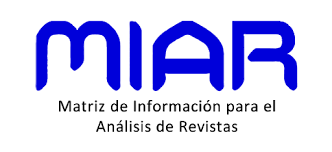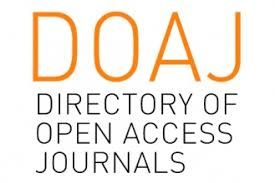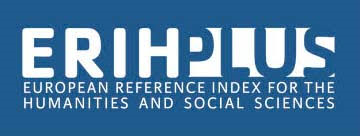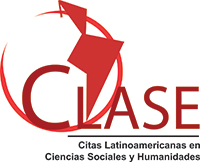O Filósofo e a cidade
Leo Strauss e os limites da racionalidade teórica
DOI:
https://doi.org/10.15448/1984-6746.2025.1.47115Palavras-chave:
Leo Strauss, esotérico e exotérico, escrita e discurso, modo de vida filosófico.Resumo
Neste artigo, analiso em que consiste a redescoberta da distinção entre a forma esotérica e exotérica da escrita e do discurso feita por Leo Strauss – uma técnica peculiar que os filósofos pré-modernos teriam desenvolvido para expor suas ideias em períodos de perseguição, quando a escolha das palavras era uma questão de vida ou morte. Segundo Strauss, a prática da escrita exotérica protege não apenas o filósofo, mas a própria cidade do teor transgressor característico do questionamento radical da filosofia. Além disso, esse tipo de escrita e discurso possui um caráter pedagógico, pois possibilita o surgimento do jovem filósofo. Constatado que essa prática é uma potência libertadora de toda moralidade, ela exige um tipo de temperamento que não se encontra em todos os indivíduos, portanto, garantir que certas coisas só sejam ditas apenas “nas entrelinhas” é respeitar a pluralidade dos diferentes modos de vida. Concluo que a retomada da distinção entre o esotérico e o exotérico proposta por Strauss, longe de ser uma tendência obscurantista, pretende salvaguardar o modo de vida filosófico e o surgimento de novos filósofos.
Downloads
Referências
ALFARABI, Abu Nasr. Obras filosóficas y políticas. Madrid: Editorial Trotta, 2009.
ALTINI, C. Philosophy as Stranger Wisdom. A Leo Strauss Intellectual Biography. New York: State University of New York Press, 2022. DOI: https://doi.org/10.1515/9781438490076
ARISTÓTELES. Ética a Nicômaco. Trad. Mario Gama Kury. Brasília: Universidade de Brasília, 1992.
ARISTÓTELES. Política. Trad. Mário da Gama Kury. Brasília: Universidade de Brasília, 1985.
BATNITZKY, L. Leo Strauss and Emmanuel Levinas: Philosophy and the Politics of Revelation. Cambridge: Cambridge University Press, 2006. DOI: https://doi.org/10.1017/CBO9780511499050
CANFORA, L. Um Ofício Perigoso: A Vida Cotidiana dos Filósofos Gregos. São Paulo: Perspectiva, 2003.
DRURY, S. The Political Ideas of Leo Strauss. Updated Edition. Lexington: Palgrave Macmillan, 2005. DOI: https://doi.org/10.1057/9781403978592
FRAZER, M. Esotericism Ancient and Modern. Political Theory, [s. l.], v. 34, n. 1, p. 33-61, 2006. DOI: https://doi.org/10.1177/0090591705277770
HEIDEGGER, M. Contribuições à Filosofia (Do Acontecimento Apropriador). Trad. Marco Casanova; revisão Gabriel Lago Barroso. Rio de Janeiro: Via Verita, 2015.
HILB, C. Leo Strauss: el arte de leer. Una lectura de la interpretación straussiana de Maquiavelo, Hobbes, Locke y Spinoza. Buenos Aires: Fondo de Cultura Económica, 2005.
LAMPERT, L. Strauss’s Recovery of Esotericism. In: SMITH, S. The Cambridge Companion to Leo Strauss. Cambridge: Cambridge University Press, 2009. p. 63-92. DOI: https://doi.org/10.1017/CCOL9780521879026.004
MELZER, A. M. Philosophy between the lines: the lost history of esoteric writing. Chicago: University of Chicago Press, 2014. DOI: https://doi.org/10.7208/chicago/9780226175126.001.0001
NIETZSCHE, F. Além do bem e do mal: prelúdio de uma filosofia do futuro. Trad. Mário Ferreira dos Santos. Petrópolis: Vozes, 2013.
OLIVEIRA, R. R. Esoterismo e filosofia política na obra de L. Strauss. Dissertatio, [s. l.], n. 46, p. 27-55, 2017. DOI: https://doi.org/10.15210/dissertatio.v46i0.9829
STRAUSS, L. A. Giving of Accounts. In: STRAUSS, L. Jewish Philosophy and the Crisis of Modernity. Albany: State University of New York Press, 1997a.
STRAUSS, L. Farabi’s Plato. Louis Ginzberg Jubilee, New York, p. 357-393, 1945.
STRAUSS, L. An Introduction to Political Philosophy: Ten essays by Leo Strauss. [Ed. Hilail Gildin]. Detroit: Wayne State University Press, 1989a.
STRAUSS, L. Exoteric teaching. In: STRAUSS, L.; PANGLE, L. (org.). Rebirth of Classical Political Rationalism. Chicago: The University of Chicago Press, 1989b.
STRAUSS, L. Gesammelte Schriften. Band. 3: Hobbes’ politische Wissenschaft und zugehörige Schriften, Briefe (Heinrich Meier, ed.), Metzler Verlag. [S. l.], 2001. DOI: https://doi.org/10.1007/978-3-476-03542-4_1
STRAUSS, L. Jewish Philosophy and the Crisis of Modernity. Albany: State University of New York Press, 1997b.
STRAUSS, L. Liberalism Ancient and Modern. Foreword by Allan Bloom. Chicago: University of Chicago Press, 1995a.
STRAUSS, L. Natural Right and History. Chicago: The University of Chicago Press, 1965. Originalmente publicado em 1953.
STRAUSS, L. On Tyranny. Chicago: The University of Chicago Press, 2000.
STRAUSS, L. PANGLE, L. (org.). Rebirth of Classical Political Rationalism. Chicago: The University of Chicago Press, 1989c.
STRAUSS, L. Persecution and The Art of Writing. Chicago: The University of Chicago Press, 1988. Originalmente publicado em 1952. DOI: https://doi.org/10.7208/chicago/9780226227887.001.0001
STRAUSS, L. Philosophy and Law: Contributions to the understanding of Maimonides and His Predecessors. New York: State University of New York Press, 1995b. DOI: https://doi.org/10.1353/book10769
STRAUSS, L. Reason and Revelation. In: MEIER, H. Strauss and the Theologico-Political Problem. Cambridge: Cambridge University Press, 2006.
STRAUSS, L. Studies in Platonic Political Philosophy. Chicago: The University of Chicago Press, 1983. DOI: https://doi.org/10.7208/chicago/9780226193878.001.0001
STRAUSS, L. The City and Man. Chicago: The University of Chicago Press, 1992. Originalmente publicado em 1964.
STRAUSS, L. The three waves of modernity. In: STRAUSS, L. An Introduction to Political Philosophy: Ten essays by Leo Strauss. Ed. by Hilail Gildin. Detroit: Wayne State University Press, 1989d. p. 81-98.
STRAUSS, L. Thoughts On Machiavelli. Chicago: The University of Chicago Press, 1984.
STRAUSS, L. Walker’s Machiavelli. Review of Metaphysics, Washington, v. 6, 1953.
STRAUSS, L. What Can We Learn From Political Theory? The Review of Politics, South Bend, v. 69, p. 515-529, 2007. Originalmente publicado em 1943. DOI: https://doi.org/10.1017/S0034670507001179
STRAUSS, L. What is Political Philosophy? And Other Studies. Chicago: The University of Chicago Press, 1988. Originalmente publicado em 1959.
STRAUSS, L.; LÖWITH, K. Correspondence. Independent Journal of Philosophy, [s. l.], v. 5/6, 1988.
TRAWNY, P. Adyton: a filosofia esotérica de Heidegger. Trad. Marcia Sá Cavalcante Schuback. Rio de Janeiro: Mauad X, 2013.
XENOS, N. Cloaked in Virtue: Unveiling Leo Strauss and the Rhetoric of American Foreign Policy. Abingdon: Routledge, 2008.
Downloads
Publicado
Como Citar
Edição
Seção
Licença
Copyright (c) 2025 Veritas (Porto Alegre)

Este trabalho está licenciado sob uma licença Creative Commons Attribution 4.0 International License.



















